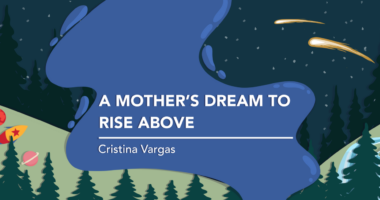CLN5 Gene Therapy Trial Now Enrolling Children at New York Site

Children with CLN5, a type of late infantile Batten disease, are now being recruited for a first-in-human clinical trial testing NGN-101, Neurogene‘s experimental gene therapy for the rare neurological condition.
The trial will be conducted at the University of Rochester Medical Center (URMC), in upstate New York, the company announced.
This disease type is caused by mutations in a gene called CLN5. Also known as CLN5, the disorder is characterized by symptoms that include seizures, motor dysfunction, cognitive difficulties, and vision impairment. There are no currently approved therapies for CLN5.
NGN-101 is designed to deliver a functional version of the CLN5 gene to cells in a patient’s brain, thereby correcting the underlying cause of the disease. The therapy works using a modified viral vector, called adeno-associated virus (AAV), to deliver its genetic payload to the body’s cells. AAV is popularly used in gene therapy because it is easy to manipulate in a lab, and it doesn’t cause disease in people.
The Phase 1/2 clinical trial, called CLN5-200 (NCT05228145), is seeking to recruit about three children, ages 3 to 8, who have a genetically confirmed diagnosis of CLN5. To be eligible for participation, children must have some loss of visual acuity, as well as impaired motor and/or language development. Participants also must be able to walk, with or without assistance.
During the trial, all study participants will be treated with NGN-101. The therapy is given via two injections, one into the brain and another into one eye, that are administered during the same procedure.
Participants will be monitored for safety and efficacy outcomes for five years after treatment with NGN-101. For the first six months after being treated, the participants must reside close to the clinical trial site to facilitate monitoring and care. After that, participants will regularly check in via telephone and with decreasingly frequent in-person visits to the trial site.
The study will be monitoring a battery of assessments of motor, language, and vision function, as well as safety-related outcomes.
Neurogene, which is sponsoring the trial, has a comprehensive travel and expense policy in place, through which it will pay trial-related costs and expenses. While the study site is in the U.S., the trial is open to children worldwide; a translator can be made available for participants who do not speak English.
More information about the trial can be obtained by contacting Neurogene by phone at 1-877-237-5020. Interested families also can contact the company by email at [email protected], while healthcare providers can contact the company at [email protected].
Plans for the trial were announced late last year, shortly after Neurogene secured the clearance to start testing from the U.S. Food and Drug Administration (FDA).
Neurogene also is enrolling patients with CLN5 or CLN7 (another type of late-infantile Batten) in a natural history study (NCT03822650) that is evaluating how these diseases tend to progress in the absence of treatment. More information on that study can be found here.






